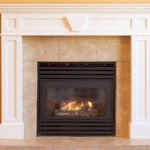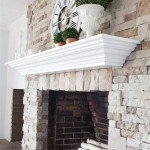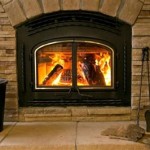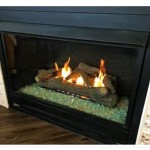Replace Gas Fireplace With Wood Burning Stove: Essential Considerations
Upgrading from a gas fireplace to a wood-burning stove can enhance your home's ambiance and warmth. However, this transition requires careful planning and consideration of several essential aspects:
Fuel Availability and Storage
Wood-burning stoves require a constant supply of firewood. Ensure you have access to a reliable source of seasoned hardwood, such as oak or maple. Proper storage is crucial to keep firewood dry and prevent rot and insects.
Chimney and Flue
A properly functioning chimney and flue are vital for safe and efficient operation of a wood-burning stove. The chimney should be inspected and cleaned regularly to remove creosote buildup and prevent chimney fires. Ensure the flue is sized correctly for the stove and that it has a damper to control the draft.
Ventilation and Airflow
Wood-burning stoves release combustion byproducts, such as smoke and carbon monoxide. It is essential to provide adequate ventilation by installing a fresh air intake vent or opening windows. Good airflow ensures proper combustion and prevents the buildup of harmful gases.
Maintenance and Cleaning
Regular maintenance is crucial to prolong the life of your wood-burning stove. This includes cleaning the glass, removing ash buildup, and inspecting the components for any signs of wear or damage. Additionally, the stove should undergo an annual cleaning by a qualified professional.
Safety Measures
Wood-burning stoves pose potential safety risks, such as fire and burns. Install smoke and carbon monoxide detectors in the vicinity of the stove. Keep the stove area clear of flammable materials and ensure that children and pets are supervised while it is in use. Never leave a fire unattended.
Environmental Considerations
Burning wood can release particulate matter and other pollutants into the atmosphere. Consider using a high-efficiency wood-burning stove, which significantly reduces emissions. Also, ensure that the wood you use is sustainably sourced and harvested.
Cost and Efficiency
Replacing a gas fireplace with a wood-burning stove can involve significant upfront costs. However, wood is generally a more cost-effective fuel than gas in the long run. The efficiency of a wood-burning stove depends on the stove's design and the type of wood used.
By carefully considering these essential aspects, you can make an informed decision about replacing your gas fireplace with a wood-burning stove. This upgrade can create a cozy and inviting atmosphere in your home while providing a more sustainable and efficient heating source.

Replacing A Gas Fire With Wood Burner

Do You Want To Replace Your Gas Fire With A Woodburner

Is It Time To Replace Your Old Gas Fire For A More Efficient Wood Burning Stove Alfred Poppins

Converting A Fireplace To Wood Burning Stove Chesneys

Do You Want To Replace Your Gas Fire With A Woodburner

Replace Gas Fire With Woodburner In North Petherton Cosy Stoves

Converting A Fireplace To Wood Burning Stove Chesneys

Can I Swap A Gas Fire For Woodburner

Replacing A Wood Burning Stove With Gas Simon Turner Showrooms In Devon

Want To Convert Gas Wood Fireplace Full Service Chimney
Related Posts








